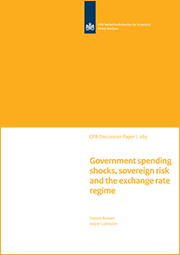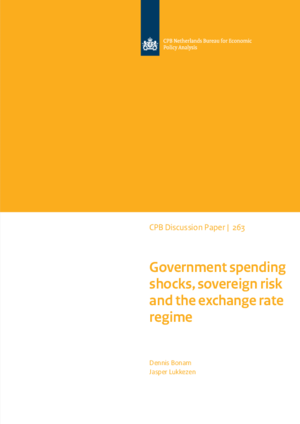January 10, 2014
Government spending shocks, sovereign risk and the exchange rate regime
Keynesian theory predicts output responses upon a fiscal expansion in a small open economy to be larger under fixed than under floating exchange rates. We analyse the effects of fiscal expansions using a New Keynesian model and find that the reverse holds in the presence of sovereign default risk.

By raising sovereign risk, a fiscal expansion worsens private credit conditions and reduces consumption; these adverse effects are offset by exchange-rate depreciation and a rise in exports under a float, yet not under a peg. We find that output responses can even be negative when exchange rates are held fixed, suggesting the possibility of expansionary fiscal consolidations.
Downloads
Authors
Jasper Lukkezen
Dennis Bonam (VU en Tinbergen)
